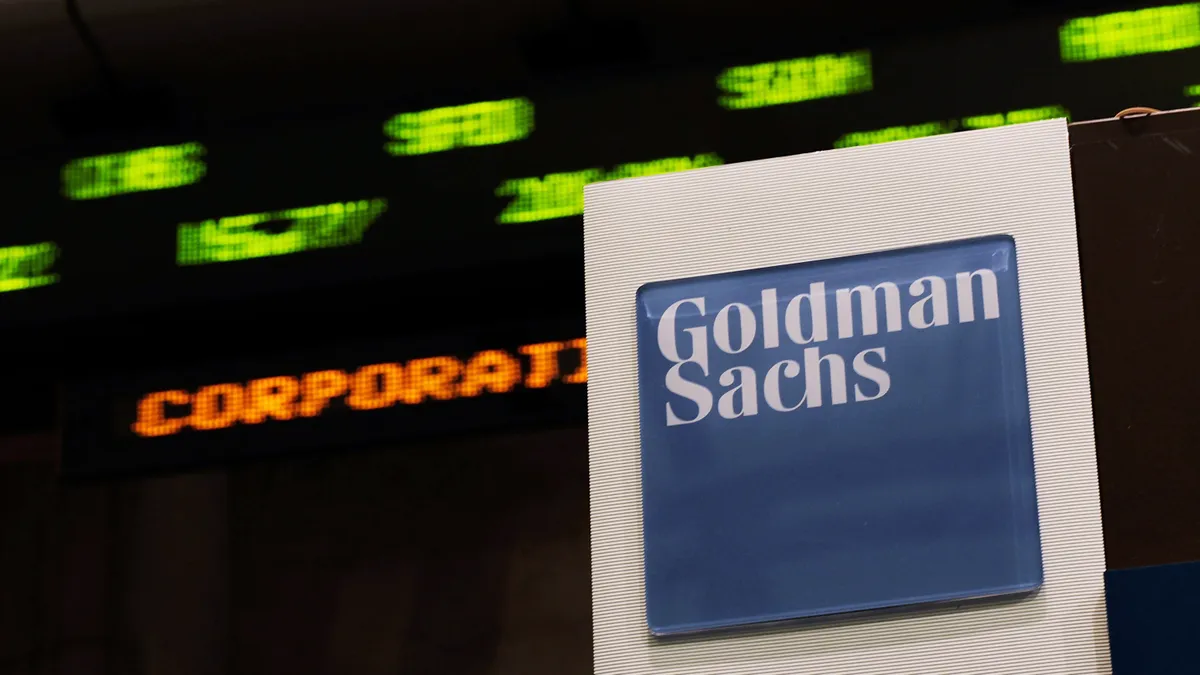Dive Brief:
- Goldman Sachs agreed to pay $15 million to settle charges that it “failed to disclose dozens of pre-trade-mid-market marks ... and failed to communicate to clients in a fair and balanced manner,” the Commodity Futures Trading Commission said Monday.
- In 2015 and 2016, when selling certain swaps, Goldman would quote two prices, the CFTC said: one based on that day’s price of an equity index, and one based on the next day. But, at times, when Goldman employees knew the same-day swap could be immediately profitable, they would start the buyer off in the red, Bloomberg reported.
- In cases when Goldman gave potential buyers both prices, at times it didn’t disclose the PTMMM for the same-day swap, which would have revealed a lesser deal, the regulator said. Goldman’s failure to do so violated CFTC rules.
Dive Insight:
Goldman targeted clients with less knowledge of the swap market, the CFTC asserted.
“[C]ommunications show that Goldman personnel believed that the less the clients understood about the economics of the same-day swaps, the more profit Goldman could make,” the CFTC noted in its settlement order.
Goldman admitted it didn’t properly disclose pre-trade marks for most “same-day” swaps executed in 2015 and 2016, but it didn’t admit or deny other allegations.
A bank spokesperson declined to comment to Bloomberg.
“The purpose of the CFTC’s Business Conduct Standards is to promote transparency and fairness in the swaps market,” Ian P. McGinley, director of enforcement for the regulator, said in a statement Monday. “As today’s penalty against Goldman demonstrates, the CFTC will aggressively pursue swap dealers that violate these business conduct standards.”
Through a “same-day” swap trade, Goldman could “go long the index at a below-market level or go short the index at an above-market level,” the CFTC said.
“This was more or less a zero-sum game,” the regulator asserted. “Indeed, any client taking the other side of the trade would be buying the index at an above-market level or selling the index at a below-market level. In other words, under these circumstances, the client would start the equity leg of the swap underwater.”
With this setup, “Goldman personnel failed to provide the clients with the transparency that the regulations require and communicated in a manner that caused the same-day swaps to appear more economically advantageous to the client than they actually were,” the CFTC said.













